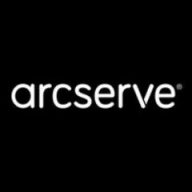

Arcserve UDP and NetApp Cloud Backup are prominent solutions in the data protection landscape. Users are generally happier with the pricing and support of Arcserve UDP, but NetApp Cloud Backup is favored for its advanced features.
Features: Arcserve UDP users highly value its comprehensive data protection, ease of installation, and reliability. NetApp Cloud Backup garners praise for its seamless integration, scalability, and robust cloud compatibility. Despite both products offering strong feature sets, NetApp Cloud Backup's cloud-centric approach is a significant differentiator.
Room for Improvement: Arcserve UDP users often mention the need for better reporting tools and enhanced cloud capabilities. For NetApp Cloud Backup, users seek more intuitive settings and quicker support response times. Arcserve UDP shows room for development in cloud integration, whereas NetApp Cloud Backup could improve usability and support efficiency.
Ease of Deployment and Customer Service: Arcserve UDP is noted for its straightforward deployment process and reliable customer service. NetApp Cloud Backup also provides a smooth deployment experience but receives mixed feedback on customer support responsiveness. Arcserve UDP is preferred for easier deployment and consistent customer support, while NetApp Cloud Backup excels in a cloud-native environment.
Pricing and ROI: Users find Arcserve UDP offers competitive pricing with good ROI, appreciating its value for money. NetApp Cloud Backup, though perceived as more expensive, is considered worth the investment due to its feature richness and performance. Arcserve UDP is budget-friendly with solid returns, whereas NetApp Cloud Backup justifies its higher cost through superior functionality.
I have local support; we have a team that has expertise in the solution, so we usually resolve situations in-house without sending questions to Arcserve.
Regarding the setup cost for Arcserve UDP, it is significantly important, but the price is similar to all our options where clients need to have backup on-premises and replication in the cloud.
I have utilized Arcserve UDP's data deduplication feature, and the data deduplication feature helps my storage efficiency significantly.
| Product | Market Share (%) |
|---|---|
| Arcserve UDP | 1.1% |
| NetApp Cloud Backup | 0.5% |
| Other | 98.4% |

| Company Size | Count |
|---|---|
| Small Business | 24 |
| Midsize Enterprise | 10 |
| Large Enterprise | 9 |
NetApp Cloud Backup is a fully integrated service for cloud backup and restoration. It was created to comply fully with NetApp's native data management software ONTAP, used for hybrid cloud experience. NetApp Cloud Backup is used to create backup and restoration for the protection and archiving of data, databases, and virtual machines related to the Cloud and On-Premises data in ONTAP. The way NetApp Cloud Backup works is by automatically creating block-level incremental backups. This ensures that the created backups are very fast and easy to restore. It is suitable for data protection regarding on-premises software as well as in the public cloud. NetApp Cloud Backup provides users with the ability to protect their cloud data at affordable prices and with a user-friendly interface so they don't need a lot of technical knowledge to be able to secure their cloud storage.
The copies created by NetApp Cloud Backup can be stored in the user's personal object storage in the cloud as well as on premises with StorageGRID - NetApp's storage platform. The backup copies can be restored to the original source or to a different source in Cloud Volumes ONTAP. NetApp Cloud Backup provides backups to AWS, Azure, and Google Cloud.
The features NetApp Cloud Backup provides include:
In addition to enhanced security and protection from malicious attacks, the advantages of using NetApp Cloud Backup include:
Abbasi P., a User at a financial services firm, likes that NetApp Cloud Backup is a completely agentless solution.
A Service Manager at a tech services company values its stability, scalability, and good technical support.
We monitor all Backup and Recovery reviews to prevent fraudulent reviews and keep review quality high. We do not post reviews by company employees or direct competitors. We validate each review for authenticity via cross-reference with LinkedIn, and personal follow-up with the reviewer when necessary.